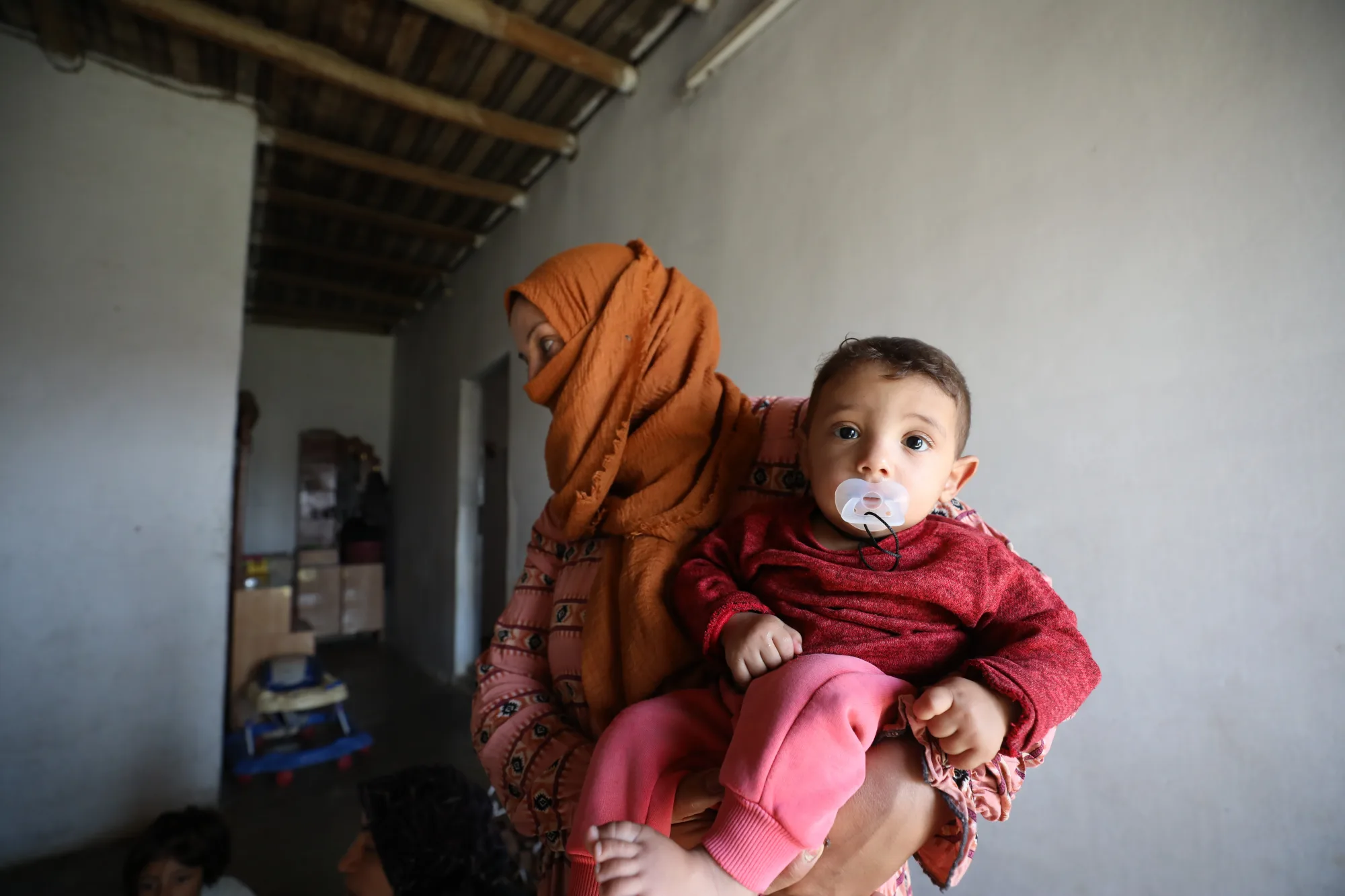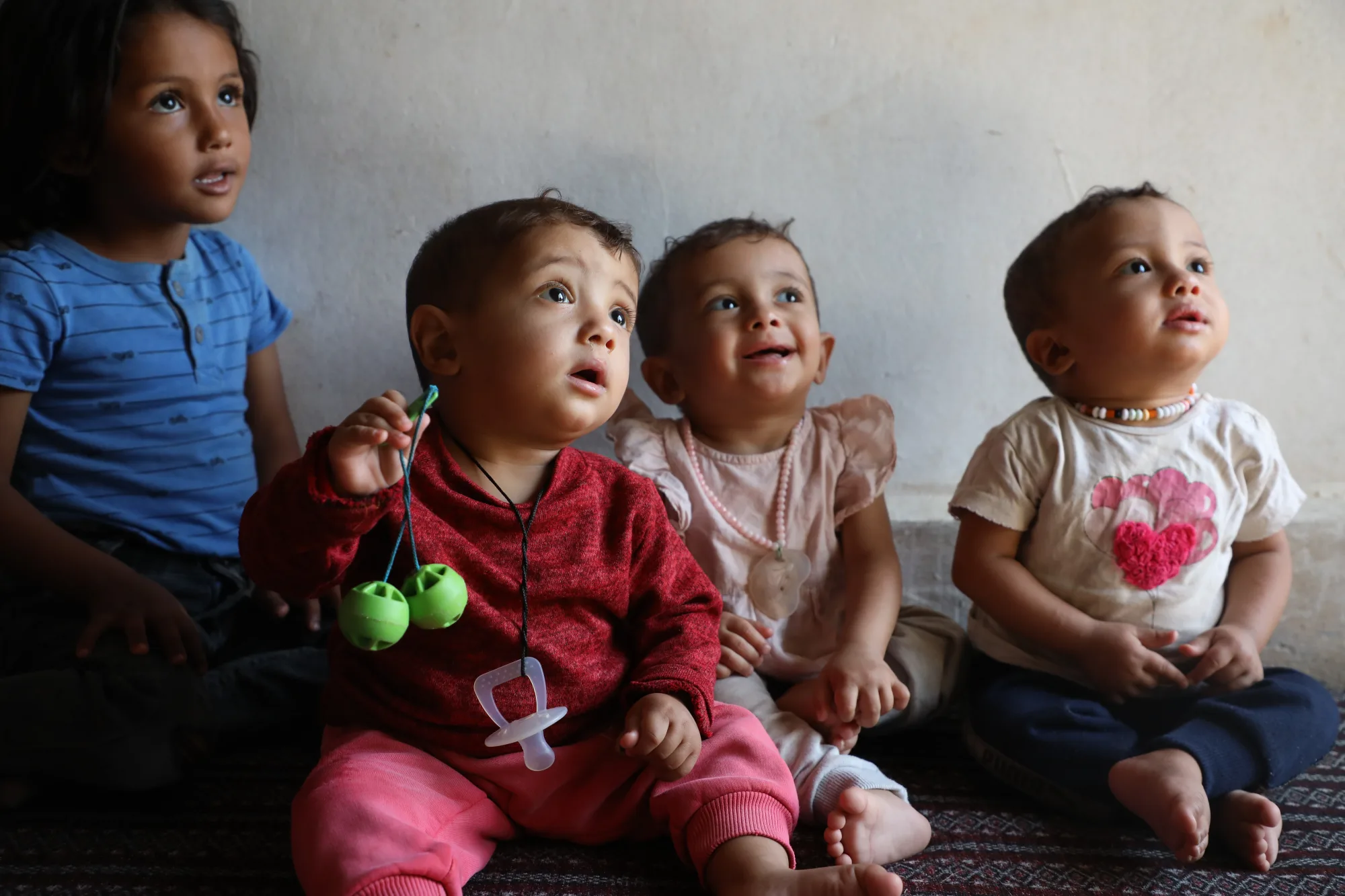Road to Recovery: Tackling Hunger and Malnutrition in Syria
* Names changed to protect identities.
Manar* is a mother of five, who lives with her husband and daughters in northern Syria. Manar’s husband Mustafa* works long days as a porter but only makes about $20,000 SYP (about $2 CAD) every day for his work.
“Our house is rented, [and] we [pay] 150,000 SYP (approx. $16 CAD) for the rent. Not to mention the costs of electricity and water. We [were] going through difficult times,” Manar says. “The dollar value increases. The 20,000 or 25,000 SYP that he [makes] a day isn’t enough to make ends meet.”
With the cost of food rising alongside their rent, electricity and other essential items, Manar and Mustafa often skipped meals to ensure their daughters had enough to eat. Despite their efforts though, their youngest children – triplets Bayan*, Bara’a* and Bahiya* – became malnourished.

Manar had originally brought the triplets to a Save the Children-supported health centre for vaccinations when staff alerted her to their malnourished state.
“When vaccinating them, the health workers saw how weak and thin they were,” Manar says. “They told me about [the nutrition] centre and that they [would] help me, God willing… [The staff at the centre] measured their weight and height, and even suggested that if their conditions [didn’t] improve, they should be referred to a hospital.”
Since Manar’s initial visit, nutrition centre staff monitored the triplets’ condition for over five months and provided them with therapeutic food such as Plumpy Nut – which is a peanut-based paste used in the treatment of severe acute malnutrition – to supplement their diet.

As of October 2023, Bayan, Bara’a, and Bahiya have fully recovered from malnutrition, crawling and playing with their older sisters.
“When they eat together, play together, and feed each other, they start to have fun and play together,” Manar says. “Their movements improved a lot. Their situation is now better than in the past.”
Although she is thrilled about the triplet’s health, Manar is concerned that her family’s struggle to afford food will cause Bayan, Bara’a, and Bahiya to become malnourished again. However, looking forward, Manar hopes that her children will remain healthy and have a bright future.


